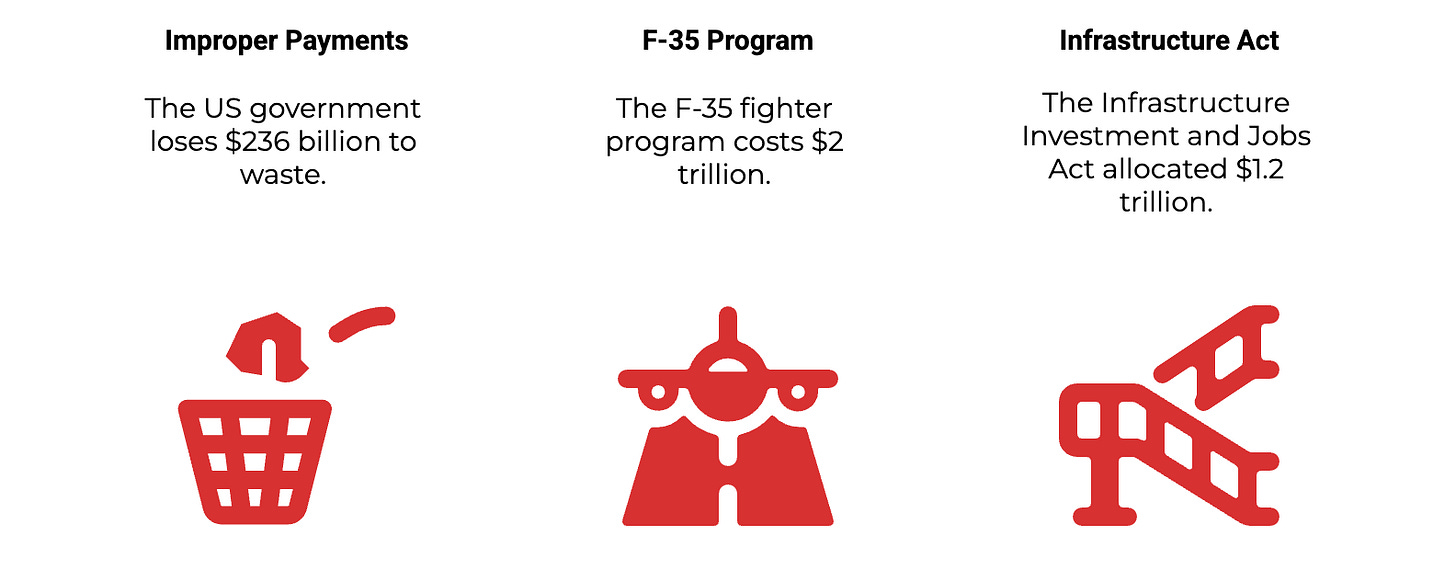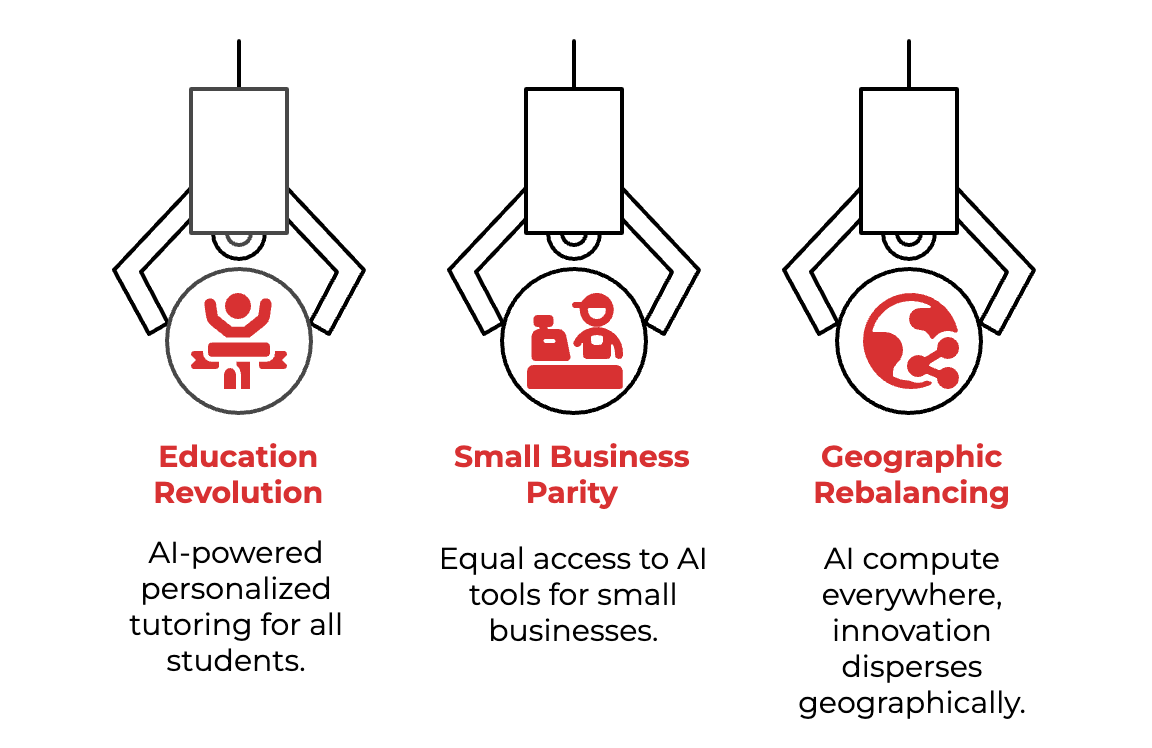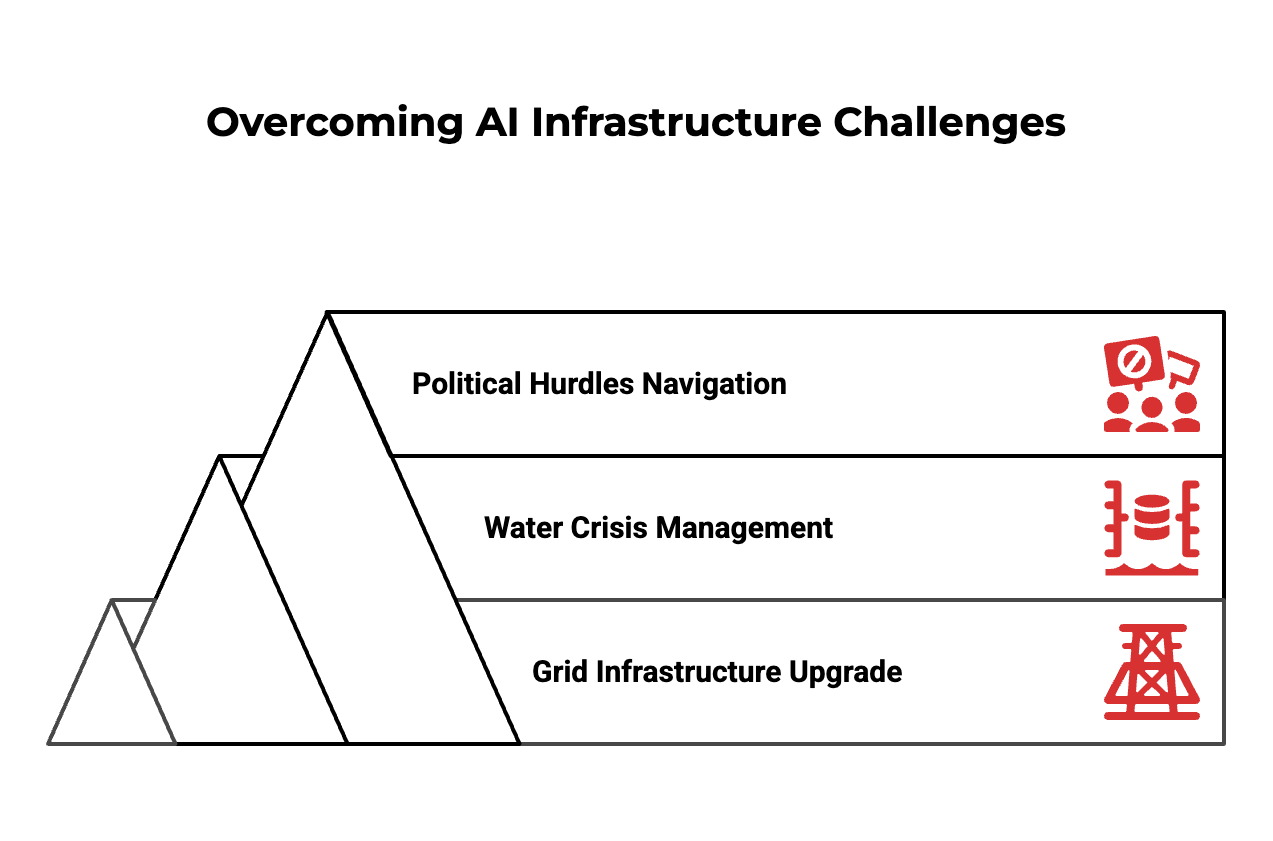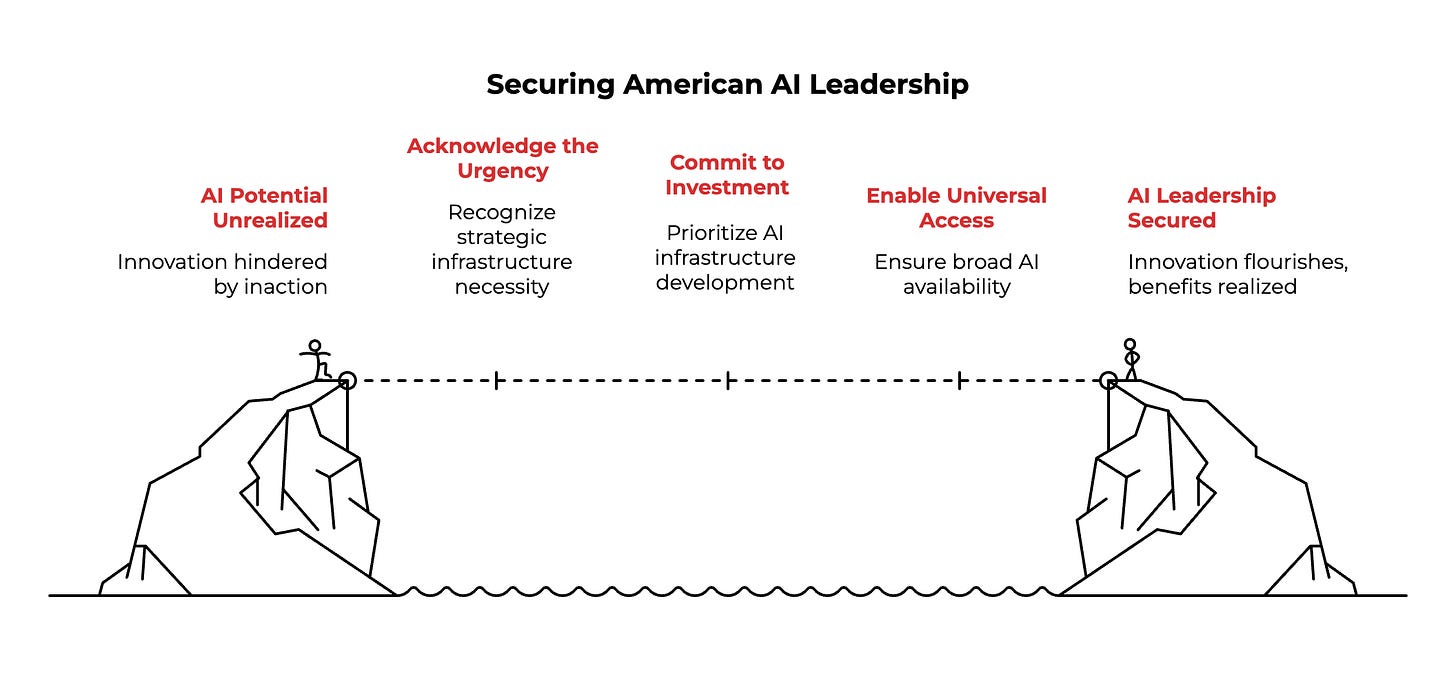What If America Made AI a Basic Right?
The infrastructure bet nobody's making
Hey Adopter,
Yesterday, everyone got excited about rumors that UAE residents were getting free ChatGPT Plus. They weren't. Classic internet telephone game turned infrastructure news into fantasy.
But here's the thing everyone missed while chasing the fake story. The UAE just announced something far more interesting: a 5-gigawatt AI infrastructure project in Abu Dhabi spanning 10 square miles, with OpenAI managing a 1-gigawatt compute cluster. The first 200 megawatts go live in 2026, likely with 100,000 Nvidia chips.
No free subscriptions. Just raw, industrial-scale AI infrastructure that dwarfs anything America has committed to building.
So let's run a different thought experiment. What if America stopped debating AI safety committees and started treating AI access like we treat highways, schools, or the electrical grid? What if we made advanced AI compute a basic right?
The Real Numbers Behind Universal AI Access
America consumed 4,000 TWh of electricity in 2023. To give every American household the same AI compute power the UAE is building per capita, we'd need roughly 34 gigawatts of dedicated AI infrastructure.
That's massive. Data centers and EVs alone will add 290 TWh of new electricity demand by 2030. Adding universal AI access would require another 290+ TWh annually.
The infrastructure bill? $20 billion for the entire UAE project, with expected outlays of $8 to $10 billion each in the Gulf and the U.S. Scale that nationally and you're looking at $240-410 billion in one-time infrastructure costs, plus roughly $38 billion yearly for electricity.
Total annual cost: approximately $74 billion.
The Perspective That Changes Everything
Before you dismiss that number, consider what America already spends without blinking.
We lose $236 billion annually to improper government payments. Just waste.
The F-35 fighter program will cost over $2 trillion across its lifetime.
The Infrastructure Investment and Jobs Act allocated $1.2 trillion.
Suddenly $74 billion for universal AI access looks less like fantasy and more like a policy choice. We already write checks this size. We just write them for different things.
What Universal Access Would Actually Deliver
Forget the tired "democratization" rhetoric. Let's talk concrete outcomes that matter for American competitiveness.
The Education Revolution
Every student gets personal AI tutoring. Not some watered-down educational version. The full thing. Rural Mississippi gets the same computational resources as Palo Alto.
Kids don't just learn about coding. They build real projects with AI assistance in real-time. The homework gap doesn't just narrow. It disappears entirely.
Small Business AI Parity
Right now, sophisticated AI tools belong to companies with enterprise budgets. Universal access flips that overnight. Every corner store owner gets the same analytical capabilities as Walmart corporate. Every freelancer competes with McKinsey's toolkit.
The AI moat around big corporations evaporates. Competition becomes about execution, not access to tools.
Geographic Rebalancing of Innovation
Silicon Valley hoards talent because that's where the infrastructure lives. But if AI compute is everywhere? That developer in Iowa doesn't need to relocate to San Francisco. That startup in Tennessee doesn't need Valley funding just to access basic AI capabilities.
Brain drain reverses. Innovation disperses. The coasts lose their monopoly on the future of work.
The Problems Nobody Wants to Discuss
Of course, this isn't simple. The challenges are real and mostly unglamorous.
Grid Infrastructure Reality
The numbers are staggering. An increase of approximately 580 TWh by 2030 (290 TWh from existing data center and EV growth plus 290 TWh from universal AI) would represent a 14.5% increase over 2023's total U.S. consumption of 4,000 TWh.
California can't keep lights on during heat waves. Texas freezes when it gets cold. Our transmission infrastructure needs hundreds of billions in upgrades just for projected growth, before adding AI to the mix.
The Water Crisis Nobody Mentions
Data centers are thirsty. A large facility uses 5 million gallons daily for cooling. Scale that to support 340 million Americans and you're talking about water consumption equivalent to several major cities.
In the Southwest, where water rights already spark conflicts, explaining why AI clusters get priority over agriculture becomes politically impossible.
Political Reality Check
Here's the harsh truth: $64 billion in U.S. data center projects have already been blocked or significantly delayed due to local, bipartisan opposition. That's just regular data centers, not the massive AI infrastructure we're discussing.
Every data center needs to go somewhere. The permitting battles alone could take decades. Environmental reviews. Zoning fights. Local opposition to industrial facilities.
Remember how long it takes to build a single power plant? Now multiply that complexity by hundreds of required facilities.
The Strategic Middle Path
But here's where it gets interesting. What if we didn't try to build everything at once?
The Voucher-First Approach
Start with demand-side stimulus, not supply-side infrastructure. Give every household $240 annually in AI tokens. Let them choose their platform. Let market demand drive capacity expansion where it makes economic sense.
This creates a $31.7 billion annual market that private companies will race to serve. No government picking winners. No massive upfront infrastructure commitment. Just market forces with a nudge toward universal access.
Education as the Strategic Wedge
Begin with dedicated AI access for every educational institution. Students develop AI literacy from elementary school forward. Teachers get AI assistance for lesson planning and grading. Schools become the proof-of-concept for broader society.
This builds the political constituency that justifies expansion while creating a generation that expects AI access as standard infrastructure. Smart politics wrapped in smart policy.
State Laboratory Competition
Let states experiment with different approaches. Wyoming has excess wind power? Perfect for AI clusters. Tennessee has cheap hydroelectric? Ideal for data centers. Federal matching funds for states that solve the infrastructure puzzle.
Create competition between states for AI leadership, not just corporate headquarters. Let successful models prove themselves before national rollout.
The Nuclear Accelerant
Bundle every major data center with small modular reactors. Solve power and location problems simultaneously. Create thousands of high-paying jobs. Achieve energy independence through computation.
Turn the energy challenge from barrier into opportunity.
The Question That Actually Matters
OpenAI's Chris Lehane told reporters: "There are two countries in the world that can build this at scale, and the U.S. has a lead". However, China's comprehensive, state-backed strategy, focusing on hardware development, industrial applications across key sectors, and influence in international standard-setting, presents a formidable and structurally different competitive challenge.
While American private-sector innovation has produced world-leading AI capabilities, we're competing against coordinated national strategies with different rules and timelines.
The UAE is betting $20 billion on AI infrastructure. China continues building massive compute clusters with state backing. Other nations are making strategic investments while we debate whether ChatGPT is harmful to students.
But here's the (even harder) truth: traditional infrastructure like highways gets built once and lasts decades. AI infrastructure faces ongoing, recurring costs for energy and rapid hardware refresh cycles. This isn't a one-time investment. It's a permanent commitment to staying competitive in the global AI race.
In 1956, Eisenhower launched the Interstate Highway System. It cost $500 billion in today's dollars and transformed America. Not because of the roads themselves, but because of what the roads enabled.
AI infrastructure is this generation's interstate system. The question isn't whether we can afford it. The question is whether we can afford not to do it while other nations commit to building the computational backbone of the future economy.
The math says universal AI access is feasible. The comparisons say it's affordable relative to existing spending. The strategic implications say it's necessary for maintaining American technological leadership.
But the window for action isn't infinite. Every month of delay allows competitors with different governance models to build structural advantages. Every blocked data center project is a small victory for nations willing to make hard infrastructure choices.
The only missing piece? Political will to see AI infrastructure as actual infrastructure. As something too important for market forces alone to coordinate optimally. As a strategic necessity that requires the same national commitment we once gave to highways, electricity, and the internet.
Sam Altman said establishing Stargate UAE was "a step toward ensuring some of this era's most important breakthroughs—safer medicines, personalized learning, and modernized energy—can emerge from more places and benefit the world".
Maybe it's time America made sure those breakthroughs emerge from here first. Before other nations make that choice for us.
Adapt & Create,
Kamil






